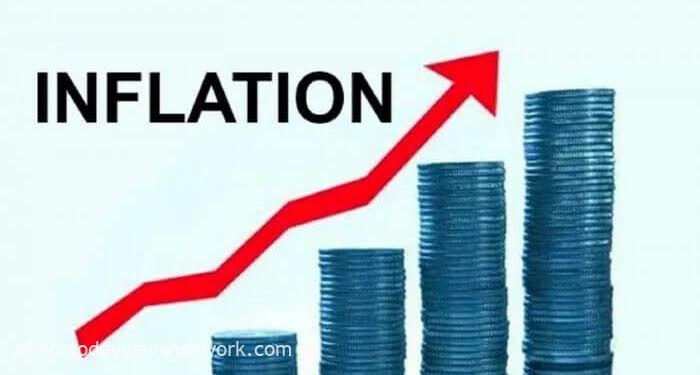The National Bureau of Statistics disclosed that inflation reached a 21-year high of 28.92 percent at the close of 2023.
Nigeria’s headline inflation rate increased to 28.92 percent in December 2023, registering a 0.72 percentage point rise compared to the 28.20 percent recorded in November 2023.
Inflation data from the Central Bank of Nigeria since 2003 reveals that December’s 28.92 percent inflation rate officially stands as the highest recorded, surpassing the previous peaks of 28.2 percent in August 2005 and November 2023.
The NBS revealed this in its ‘Consumer Price Index (December 2023)’ published on Monday.
It said, ‘On a year-on-year basis, the headline inflation rate was 7.58 per cent points higher compared to the rate recorded in December 2022, which was 21.34 per cent. This shows that the headline inflation rate (year-on-year basis) increased in December 2023 when compared to the same month in the preceding year (i.e., December 2022).’
‘Furthermore, on a month-on-month basis, the headline inflation rate in December 2023 was 2.29 per cent, which was 0.20 per cent higher than the rate recorded in November 2023 (2.09 per cent). This means that in December 2023, the rate of increase in the average price level is more than the rate of increase in the average price level in November 2023.’
Major contributors to inflation were food and non-alcoholic beverages (14.98 per cent), housing, water, electricity, gas and other fuel (4.84 per cent), clothing and footwear (2.21 per cent), transport (1.88 per cent), furnishings and household equipment and maintenance (1.45 per cent), and education (1.14 per cent).
Read also: Nigeria, Others Most Affected By High Food Inflation — W’Bank
General inflation is outpaced by food inflation, which stood at 33.93 percent in December 2023.
Nigeria is grappling with its most severe cost of living crisis, as year-on-year inflation persists without slowing down throughout 2023. While not reaching the anticipated 30 percent as predicted by experts, inflation has been attributed to the escalating poverty rates in the country.
Between January and May 2023, inflation pushed an estimated four million people into poverty in the country, according to the World Bank.
The removal of fuel subsidy and the unification of the foreign exchange rate are cited as causative factors for the notable surge in inflation in the country.
The global organization’s Nigeria Development Update report in December revealed a significant increase in petrol prices, averaging 163 percent since May. Additionally, it highlighted a 41 percent depreciation of the naira against the US dollar in the official market and a 30 percent drop in the parallel market.
The report suggested that these factors have synergized to drive inflation upwards, fueled by elevated prices of gasoline and other imported commodities.
According to a December update from global rating agency Moody, the persistent surge in inflation within the country holds the potential to spark social unrest.
In a December update, global rating agency, Moody, disclosed that the continued rise in inflation in the country has the potential to lead to social unrest.
It said, ‘Increasingly high inflation generates spending pressure on the government and raises social risks, while the extent of fiscal relief from the removal of the oil subsidy remains unclear at this stage.’

